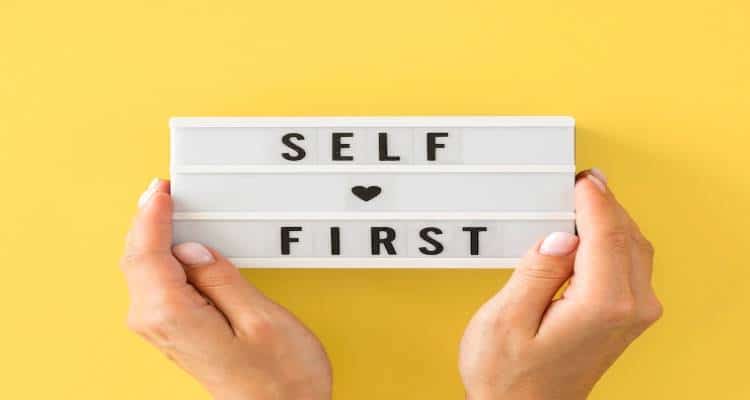To live a life of emptiness is one of the greatest tragedies of human existence. Someone who experiences it first-hand feels lost, detached, and desolate. Despite having a secure life, a good job, and healthy relationships with family and friends, you still feel a gnawing sense that something is lacking inside you. All your energies are directed toward filling the void, the source of which you may have trouble pinning down.
You are sure that this discontentment is coming from you but you don’t know the real cause behind it. Figuring out how to fill the void can pose a challenge when you lack awareness about its origins. To help you get clarity on what emptiness is and how to recognize this feeling, we reached out to Priyal Agarwal, who is the founder of the SexTech social venture, StandWeSpeak, and a mental and sexual wellness coach.
She describes emptiness as, “A varied range of emotions including numbness, loneliness, feeling disconnected, and extreme sadness. These are all feelings to be expected in response to a tough loss, trauma, loss of livelihood, or any other calamities of life. However, when these feelings outlast the stressful circumstances or become chronic and impact your ability to function, that is when this condition becomes a cause for concern.”
Symptoms Of Emptiness
Table of Contents
Constantly feeling like something is lacking can be devastating for your mental health and emotional well-being. You feel like you don’t understand yourself. There’s a lack of purpose. You struggle to understand the meaning of life. These feelings can trigger the five following symptoms of emptiness:
1. Feeling worthless
You need to start figuring out how to fill the void when a feeling of shame for not being ‘enough’ permeates through your senses. People who are empty from the inside often feel that they are insignificant and lack good qualities and strengths. In fact, they believe that nothing they do will change this “reality”, which is where the feeling of emptiness rises from.
2. A constant sense of loneliness
According to research, loneliness is a common experience with 80% of the population below 18 years of age and 40% of the population above 65 years of age reporting loneliness at least sometimes in their life. This worrying symptom refers to the sadness and emptiness that comes from a lack of social interaction.
However, it is to be noted that loneliness can occur even when the person is in a room full of people but feels a distinct lack of understanding and care from those people. They feel like they are alone in this world and no amount of human interaction will be able to fill this void.
Related Reading: 6 Relationship Problems Millennials Bring Up The Most In Therapy
3. Feeling numb
When you feel empty, you experience an undeniable numbness. It’s the inability to feel any emotion. It’s a coping mechanism against intense emotional pain. It usually develops due to trauma, abuse, loss, or even substance abuse as means of escape from sadness.
4. Despair and hopelessness
When you feel hopeless, you automatically start believing that the sadness or numbness you feel will never go away. Hopelessness occurs when a person gives up on the idea that they can get better. They feel like giving up on life because it feels pointless. These feelings can worsen their mental health issues.
5. Loss of interest
Emptiness comes with a loss of interest in everything. People start losing interest in the activities that previously brought them pleasure and joy. They may continue to do these activities, but feel bored and do not receive the same emotional gratification that they did in the past.
Where Does This Void Emerge From?
The void you are feeling can be because of many things including unemployment, a shift in hormonal levels, and relationship problems. Even a situation that may need you to reflect upon yourself can lead to feelings of emptiness, albeit temporarily. It can also be brought on by a loss, feeling empty after a breakup for instance.
Emptiness is also a symptom of depression, bipolar disorder, and PTSD. These deeper issues can only be diagnosed by a licensed psychiatrist. By and large, feeling empty can be attributed to one or more of the following reasons:
1. Experiencing the loss of a loved one
Priyal says, “People who lose someone or something they love dearly often report feelings of emptiness. This loss can refer to death in the family, breaking up with a friend or romantic partner, a miscarriage, or even losing one’s means of livelihood.
“Of course, grief is a natural response to the loss of loved ones, and it often includes a great level of emptiness. When these feelings don’t lessen or subside over time, it may become a cause for concern.”
2. Experiencing trauma
Traumatic experiences like abuse, manipulation, gaslighting, and neglect can be significant players in feelings of emptiness. Research shows that people who have experienced childhood abuse, especially emotional neglect, are more likely to report mental health issues and chronic emptiness.
3. Just a general sense of something being off
When something is wrong or missing in a person’s life, it often results in them feeling empty. This could be doing a job that they actively despise, or staying in a loveless relationship.
Related Reading: Struggling To Get Over Someone? Here Are 13 Expert Tips
4. Unhealthy coping mechanism
Talking about unhealthy coping mechanisms that people develop when they are put in a fight-or-flight response, Priyal says, “People are usually unable to selectively repress difficult emotions without affecting their positive emotions, this leads to them adopting unhealthy coping mechanisms, which further augments feelings of emptiness.”
For instance, when someone is feeling alone or battling a difficult situation, they often numb their emotions using drugs, sex, drowning themselves in work, and other activities to keep their mind occupied instead of processing their emotions and working on themselves.
5. Personality disorders
According to studies, chronic feelings of emptiness are significant in the lives of people who have a borderline personality disorder (BPD). These feelings of emptiness have been linked to impulsivity, self-harm, suicidal behavior, and impaired psychosocial function.
Emptiness is often a symptom of a deeper psychological issue, like bipolar disorder, or BPD, among others. Since emptiness is subjective to each person’s experience, there are many different internal and external causes that could be the root of the issue.
Related Reading: Separation Anxiety In Relationships – What Is It And How To Cope?
Ineffective Ways People Try To Fill Their Void With
Some people try to fill the void by getting into multiple relationships. The thrill of starting something new excites them. They become serial daters and hop from one relationship to another. They are not trying to find real love but they are just filling the void. Some other futile attempts people make to fill the void inside them are:
- Buying material goods and spending on unnecessary things
- Excessive drinking, substance abuse, and one-night-stands
- Filling the void by binge-watching shows
- Constantly working without taking a break
However, no one can fill the void that they aren’t ready to acknowledge yet. If you still can’t understand why you are feeling empty, Bonobology’s panel of experienced therapists is here to guide you through the process and paint a path for recovery.
Expert Reveals How To Fill The Void
You feel empty because you think you are unlovable and that there’s nobody out there who wants you or cares for you. This flawed perception of the self distorts your positivity and the way you see yourself. Before it gets serious, you need to find out how to fill the void. Here are a few expert-backed ways that can help:
1. Being intentional with your downtime
Priyal advises, “Plan a small but fulfilling itinerary for your free time. You will feel like rejecting these plans because you don’t feel like doing them, but it is important to push back against these thoughts and stimulate your mind with new things.”
This is the first step to how to love yourself and it’s also the hardest one, but finding new hobbies, exploring new places, and taking part in new activities will help give your mind a boost of freshness and you might even find new creative outlets along the way.
2. Acknowledging your pain by facing unhealed wounds
Priyal says, “Purposefully processing your past traumas to be able to curb the emptiness they bring is an important step in your journey of filling the void. This should primarily be done through therapy, but you can also read self-help books and join support groups. It’s time you heal your broken heart by accepting that your wounds are warranted and need cleaning and dressing.
“It is also important that you sit and feel all your feelings regarding these traumas to fully understand the emotions they evoke in you and why. This will not only help you connect with yourself but also help you be more compassionate toward others.” One of the main steps to filling a void is by accepting that you are hurt. This will also be your first toward healing. The longer you keep your feelings buried, the more painful it gets to dig them up.
Related Reading: Emotional Baggage – What It Means And How To Get Rid Of It
3. How to fill the void? Practice meditation and mindfulness
Meditation and mindfulness will help you be more present in the here and now, which will help you feel more connected to yourself and your day-to-day experiences. These also work as effective relaxation techniques that will help you experience a sense of calm and stillness you may not have in a long time. Some of the things to can try to practice mindfulness are:
- Yoga
- Deep breathing exercises
- Taking a walk for 10 minutes every day
- Journaling

4. Being more proactive
Priyal shares, “You can try to fill the void by being more physically active. Physical activities help balance your hormone levels, reduce stress, and provide energy. It also helps you to be more in-tune with your own body and its needs.”
Find ways to date yourself and make yourself feel important. A few other things you can do are setting small and achievable goals for yourself. The goals can be anything related to your professional or personal life. These short-term goals will help you combat feelings of hopelessness and worthlessness. It will help you direct your efforts toward creating a better life for yourself.
5. Try to meet the basic needs for survival
American psychologist, Abraham Maslow, came up with a theory called Maslow’s Hierarchy of Needs. It represents an ideology that humans require a few physiological and psychological factors to stay motivated throughout their life. There are five basic needs of every human:
- Physiological – Food, water, and breathing
- Safety and security – Home, wealth, and health
- Love and belonging – Friendships, romantic relationships, and social groups
- Esteem – Appreciation, respect, and acknowledgment
- Self-actualization – Being self-aware of one’s talents, personal growth, and self-fulfillment
If you are feeling empty, then there is a chance one or many of these basic needs are not being met in your life.
Related Reading: 11 Easy And Effective Tips To Survive Heartbreak Without Breaking Yourself
6. Giving back
Priyal says, “Being altruistic is one of the most psychologically rewarding things to put your time and energy into. Finding ways to contribute toward society helps combat feelings of worthlessness and loneliness, which originate from a lack of purpose and self-worth.” This kindness can come in many forms, including donating to charity, helping a coworker, visiting an old age home, or just any act of kindness that comes from the heart.
Key Pointers
- Emptiness is characterized by feelings of loneliness, worthlessness, and sadness
- Some of the symptoms of feeling empty include loss of interest and hopelessness
- You can fill the void by practicing self-love and being more proactive
Life can feel meaningless when you feel empty. But that’s not true. Your negative emotions are making you feel that way. Once you accept the uncomfortable feelings of hurt, anger, and loneliness, you will feel lighter. Learn the importance of letting go and you will head toward the journey of healing. You will feel the burden dissolving from your shoulders.
Only when you heal, will you be able to form a deeper relationship with yourself and others. A void inside you doesn’t mean it’s the end of the road. It just means life is presenting you with another opportunity to fall in love with yourself.
What Does ‘Holding Space For Someone’ Mean And How To Do It?
How To Stop Thinking About Someone? Expert Suggests 11 Strategies
9 Expert Ways To Let Go Of Hurt And Betrayal In Relationships
Ask Our Expert
You must be Logged in to ask a question.



Featured
35 Disturbing Signs Of Gaslighting In A Relationship
What Is Narcissistic Ghosting And How To Respond To It
‘My Husband Starts Fights And Then Blames Me’: Ways To Cope
How To Rebuild Your Life After The Death Of A Spouse: 11 Expert-Backed Tips
My Husband Died And I Want Him Back: Coping With Grief
“Am I Unlovable” – 9 Reasons You Feel This Way
11 Signs Your Girlfriend Was Sexually Abused In The Past And How To Help Her
Coping With Breakups: The Must-Have Breakup Apps For Your Phone
13 Heartbreaking Signs You Are Wasting Your Time Trying To Get Your Ex Back
Why Are You Obsessed With Someone You Barely Know — 10 Possible Reasons
33 Phrases To Shut Down Gaslighting And Silence Gaslighters
The Emotion Wheel: What It Is And How To Use It To Build Better Relationships
The Role Of Supportive Relationships In Addiction Recovery
7 Signs You Have A Verbally Abusive Wife And 6 Things You Can Do About It
Mommy Issues In Women – Meaning, Psychology, And Signs
Lovesickness — What Is It, Signs, And How To Cope
11 Expert Tips To Stop Being Obsessed With Someone
Exposing A Narcissist – What You Should Know
9 Reasons Your Girlfriend Is Mean To You And 5 Things You Can Do
3 Day Rule After An Argument – Meaning, How And When To Apply, Pros And Cons